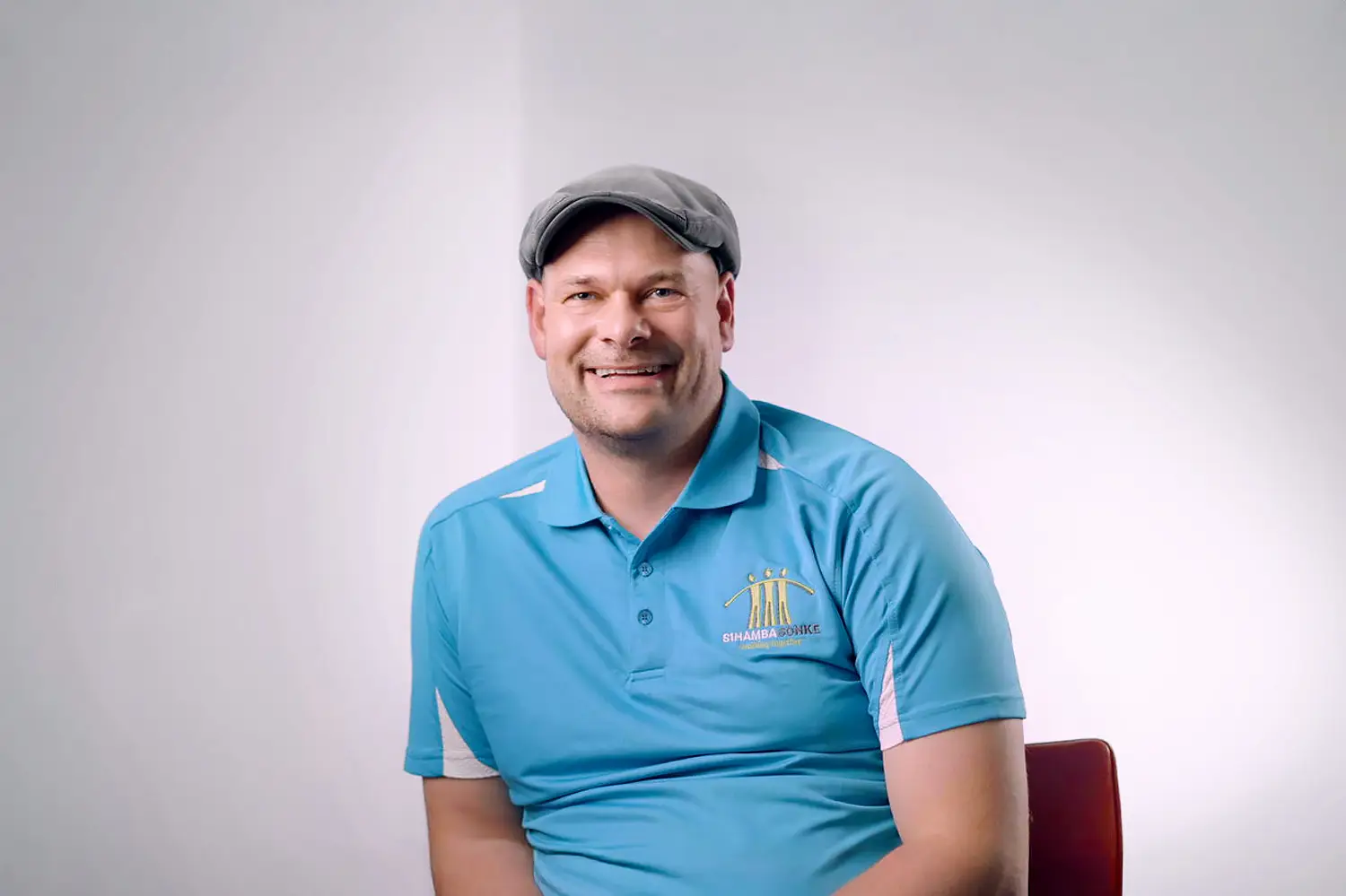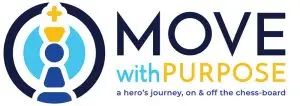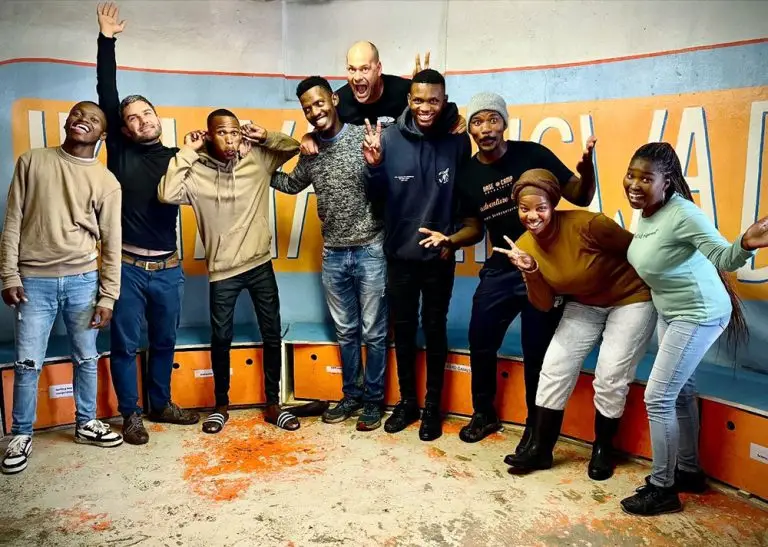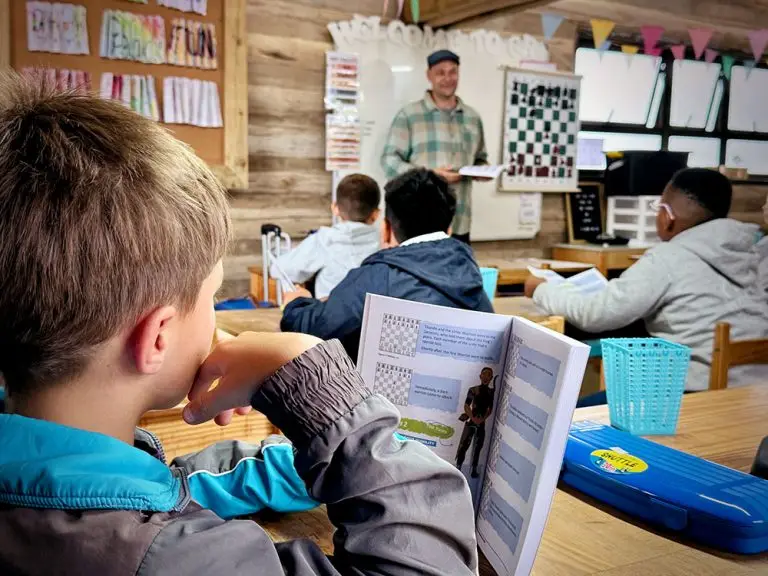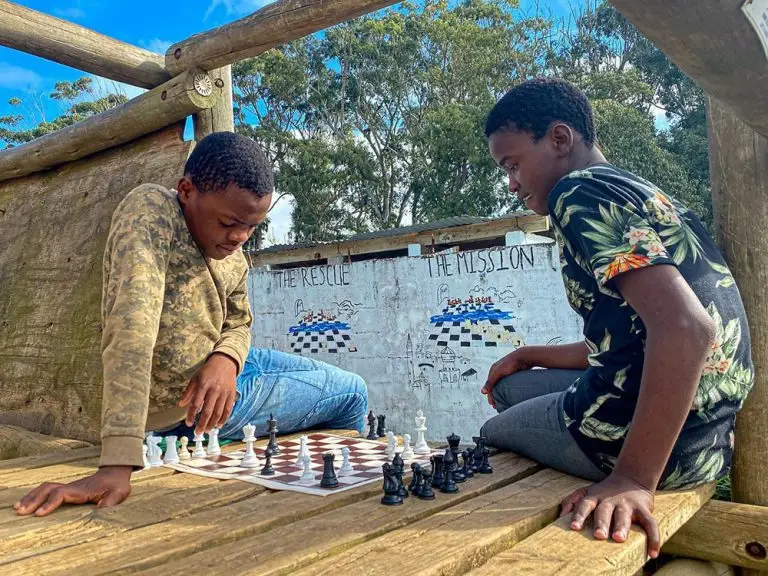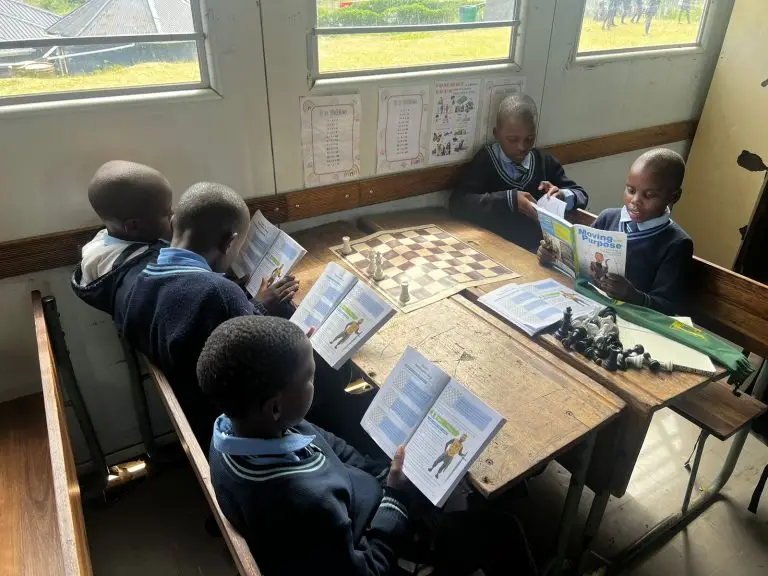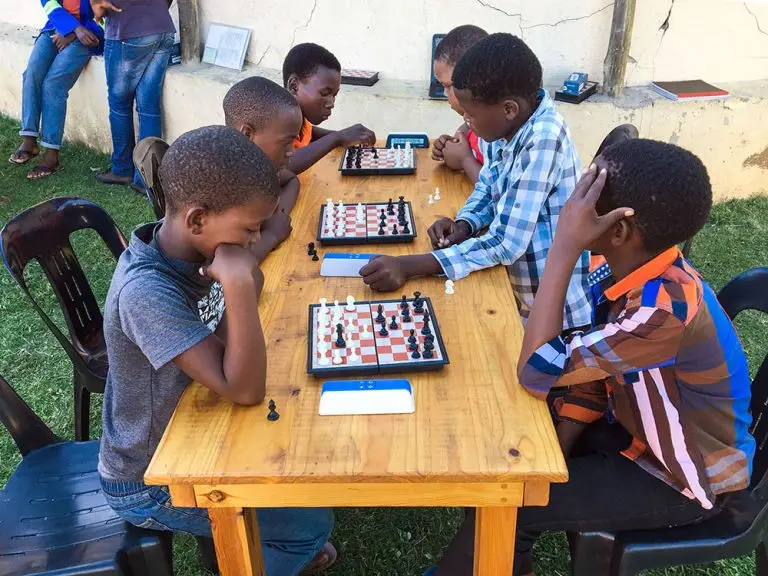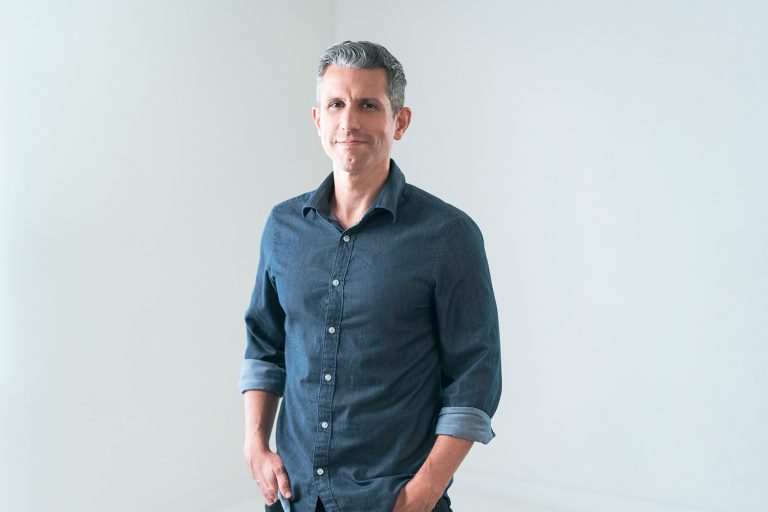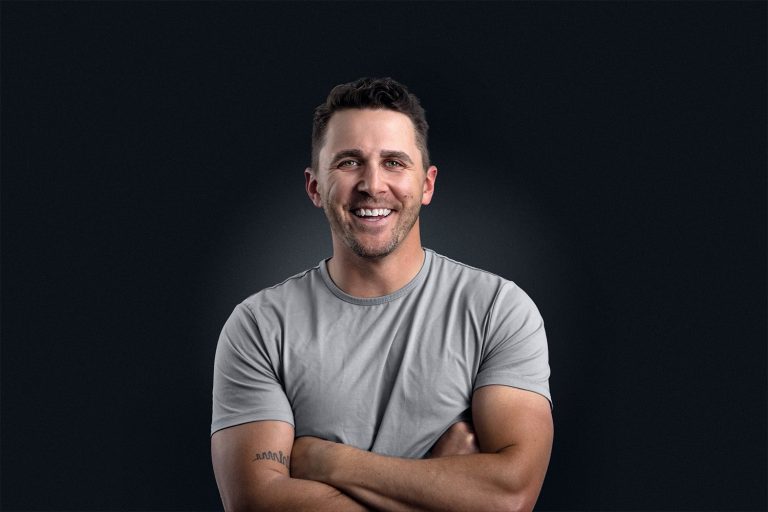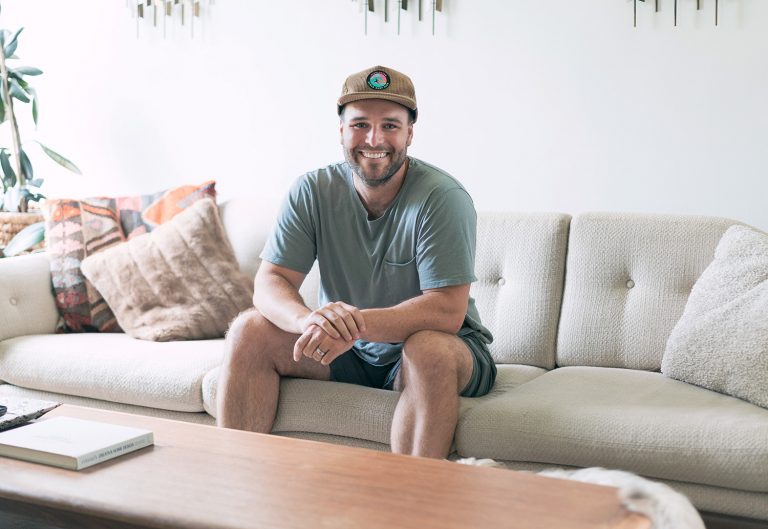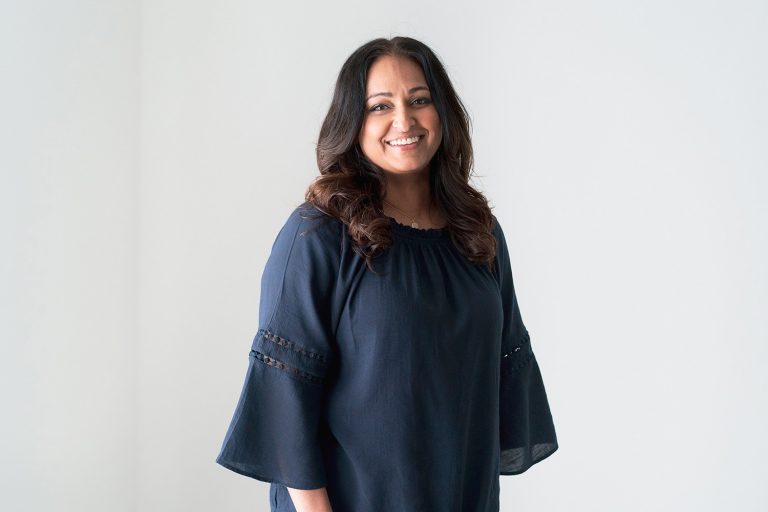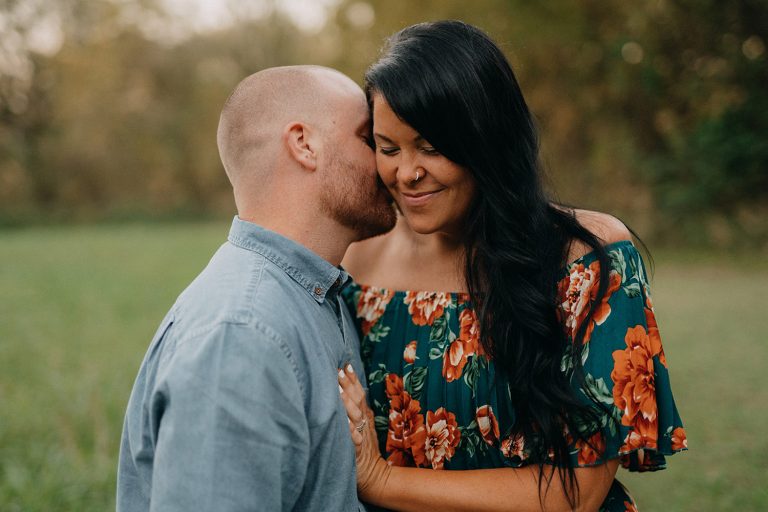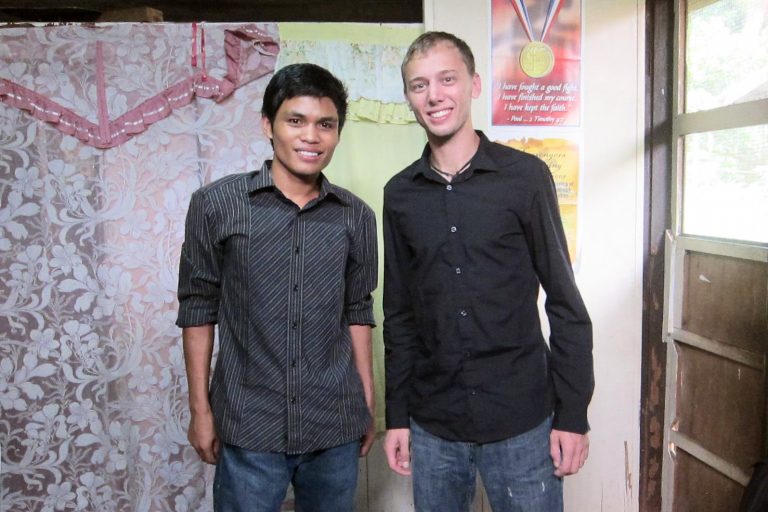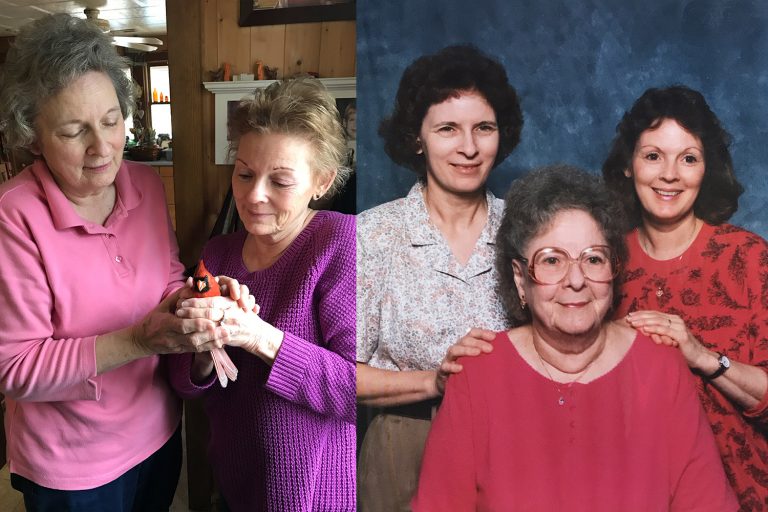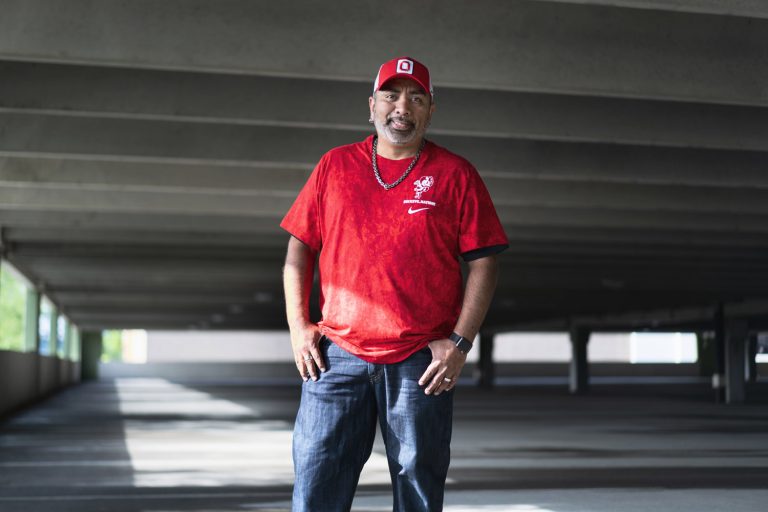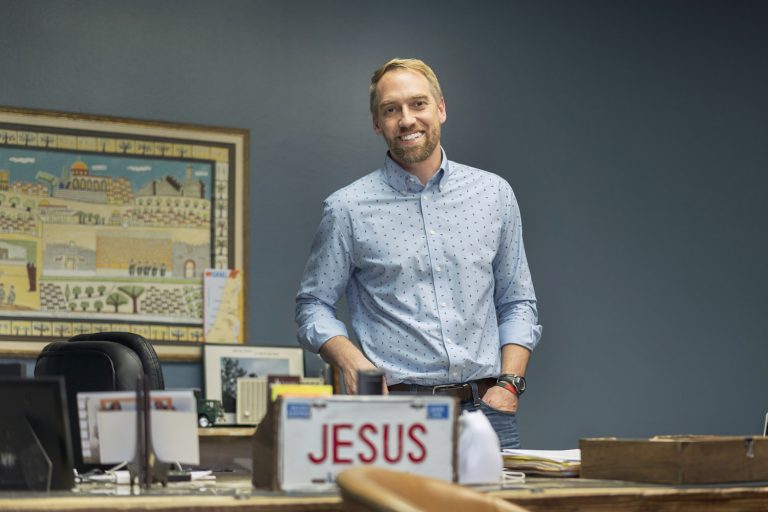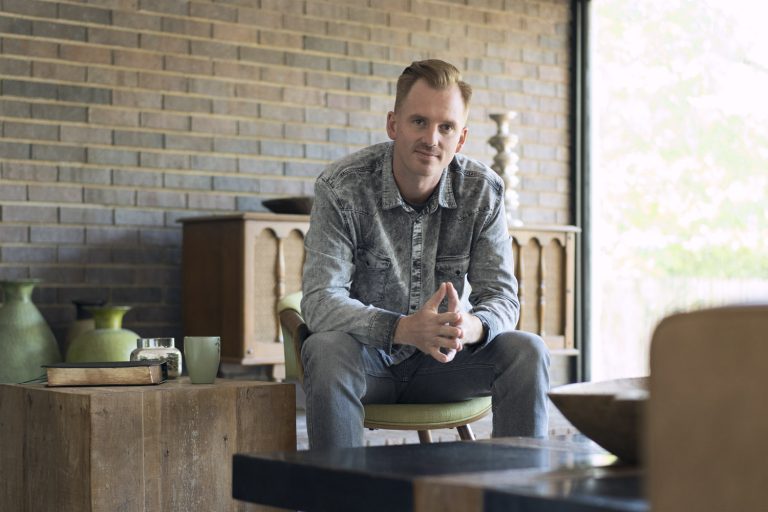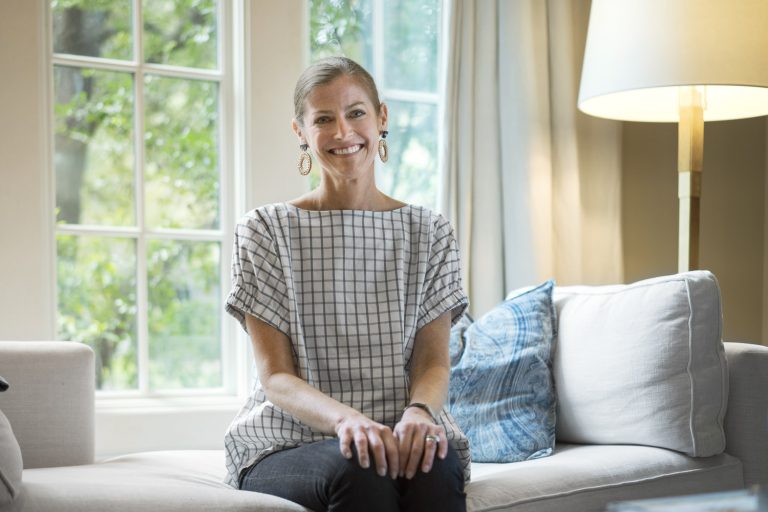Ruan
Belonging to the Father
Introduction
My name is Ruan Cilliers, and I am from South Africa. I have a lovely wife and three kids: two daughters and a son ages 7, 9, and 11.
Our journey revolves around our ministry, Sihamba Sonke. It’s the local Xhosa language, which Nelson Mandela spoke. We are in the same village, just around the corner from where Nelson Mandela grew up. You’ll probably hear the click, which is the click language in South Africa, which is famous for it.
The ministry runs a program called Moving With Purpose, which is a vehicle to help young people discover their identity in God, discover belonging, and the purpose that God has for them in Ephesians, 2:10. I’ve created good works for you that I have prepared in advance. That’s the journey that I’m going to share with you going forward.
Childhood Memories and Family Dynamics
I think my first memory in life is when I was four, and that was still in the apartheid era, living in South Africa on the border of Angola, which at that time, Namibia was part of South Africa, and protecting the border between the black people and the apartheid regime.
I remember living on the Zambezi River with elephants eating mangoes in my backyard and not being allowed to go swimming because of the crocodiles in front of our house and the hippos walking past.
There was also a traffic light, one traffic light in the community, which wasn’t used for cars. It was green when the bar was open. It was yellow for last rounds and red when the bar was closed or the pub was closed.
Normally, you’re happy when you see a green light. Unfortunately for me, a green light meant my mom sending me into the bar, telling my dad, come out of the bar, it’s time to come home. My mom was too embarrassed to go in, so I was the messenger as a five-, six–, and seven-year-old. As a son, your dad is your hero. You want him to be your hero.
My dad, his dad, died when he was nine. My mom’s dad died when she was nine. They had nothing to imitate, and it got to the point where they were close to divorcing, my dad had to make a call and we changed church communities. My dad came to do a father-son course about what it means to be a real man.
Discovering manhood in the context of the Bible. There he met a new group of friends, and a new group of community, and God radically came to shift his life. My dad showed me what it means to live a life worthy of imitation, to say sorry, and to take up responsibility. The change was because there was a change in community.
Today, my dad is running the course year after year for other young men, where he now is the story of hope, to show other young men who are on the same journey, figuring out what it means to be a man of God. My dad could now imitate that. And part of his story was now saying to these men, “Where you are is fine. I was there but look where I am now.”
Understanding Identity
Hat’s off to my dad that we went on a journey. The question is when I was young, and that wasn’t there, what happened? I think the journey around being a sinner doing things for God will give you identity, and it will give you belonging by doing things, by being number one in the team. This was the story I believed.
I remember sport became quite a big driver in my life. How can I be in the first team? How can I do well at whatever I do? Because you need to deserve your identity you need to deserve you’re belonging. It’s something that drives you to be number one. And my whole life, I was trying to do things for God, to try to get that identity, because I was in this tension of no one showed me how to be a son, because you had to deserve and do things for him.
That was my belief right throughout my school, and into my career, getting saved and actually journeying with God into ministry. Unfortunately, what was imitated to me was doing things for God.
Call to Ministry
My wife got a clear call to go to a village called Zithulele. It was amazing when we got the call, we knew we had to go. But knowing my wife had an operation when she was 18 years old, we went to the gynecologist, and he confirmed that, we would need to go the IVF route to have a chance at having a child.
So it was really a question for us, God, can we step out of faith to go to the village into ministry, leave the city of Cape Town, and not have access to the medical services we need? The gynecologist said, “Well, you can go, but you probably won’t have children.”
Life in the Villages
These villages are literally mud houses, subsistence farming, no electricity, no tar roads. The fathers were taken away from the village to go work in the mines up in Johannesburg, which is about 15 hours north of the village. They come back to see their families once a year. Of course, during that year on year on year, they get other wives up there at the mines because they’re just so disconnected to their families. So it’s very common for broken family structures.
The fathers get minimum wage and they don’t have enough money even to come back more than once a year. So now you’re sitting with young people, and when you look at the official stats, only 19% would live with both their fathers and mothers.
It’s a big majority of the fathers who are home, which means they don’t have work, which means they’re usually abusive in many ways because they’re not the ones who provide. So they drink a lot. 90% unemployment for the youth, the youth just sit on the street. They literally don’t have work to do, because there’s no economy if you don’t have tar roads, if you don’t have electricity, and if everything is subsistence farming, there’s very little to do and no money comes in.
Only four out of 10 finished high school and 1% went to college at the time when I entered the Village in 2011. There was literally no hope. If 1% could get out of this, what about the 99?
I was an engineer, traveled the world, worked for Siemens in telecommunications. But all of my leave, my whole life, I spent time in youth ministry. I would use my leave to take young men on adventure camps, to help them discover the identity, of who they are in God.
A Clear Sign and Answered Prayer
We went on a hike with a friend and came back to Cape Town, with someone I didn’t know well, and just asked, “What are you going to do this year? And she said, “I want to go to this village, or I’m going to work somewhere else.” But when she mentioned the village name something in my spirit jumped.
I got on the airplane for home, and I told my wife, “I don’t know what happened now, but the moment she mentioned the name Zithulele, something in my spirit jumped. Do you know where it is?” My wife opened the map because she knows she did some community service there. She started painting the picture I just painted for you.
She said, “You’re going to struggle with access because it’s not easy to get there. It’s far away from everything.”
This is the old homeland. This is where everything is undeveloped, and it was pushed outside into, call it, the darkest corner of our country. It was inaccessible for the cities, and we didn’t want the people to, it was just economically, they wanted to develop the good parts of South Africa, and the rest is like, Oh, we can push the black people away. That was apartheid.
So my wife continued, “There’s nothing there. As an engineer, I don’t know what you’re gonna do.” I’m like, “I don’t know, but God continues to say that we must go.”
As we continued the conversation on the airplane, everything she told me I didn’t have an answer to. I don’t know what you’re gonna do, I don’t know what I’m gonna do. I don’t know what an engineer does there without electricity. I can’t speak the language. The language is Xhosa. I only know Afrikaans and English. So it’s just like, no answers.
The plane landed, and she said, “You still want to go?” I said, “I don’t know why, but you know what? I really feel God says we must go.” She’s like, “Okay, two months ago in a worship service, God told me to go back to the village. I said no because I did my community service there.”
She said, “As a doctor, the circumstances were extremely hard. I knew the poverty. There’s a lot of trauma. Unfortunately, the only things they do is drink and rape and have a lot of sex outside of marriage, which is quite traumatic for young girls, not having rights over their bodies. The men need something to do if they don’t have work, and that’s 90% of the young people. So they have a lot of energy, but that energy is driven in a very negative space. Is that what you want?”
She said, “It was a tough life, and I just told God, I can’t do it. But if my husband Ruan comes to me and says, We must go, then God, I’ll know it’s you speaking and I will go.”
So it was a very clear call that God spoke to her first. She said, No. On the condition that if God speaks to my husband, then I will know it’s you. It was just clearly, God speaking. So we didn’t even go to do a site visit. We literally told our work we’re going to quit and we’re going to go. We did give it six months.
Stepping Out in Faith
We knew the context is you can’t buy community land or accommodation. The only way you can have accommodation is when you work at the hospital. So that was our only way into the village. So again, back to the faith journey with the complexity of making the decision around having children or not. The other complexity was not having work, and not knowing what I was going to do.
I knew I was going to do ministry, I just don’t know what it’s going to look like because I don’t have any context of the village I haven’t visited and I don’t understand it. So we got married at 30 and 32 God called us, and
then the day came when we had to leave. 27 December and no work came through. We applied for my wife and nothing came through.
We had our car packed with a big trailer and all our belongings, which wasn’t much because we weren’t married for long, but we at least had a
bit of furniture and our belongings. We’re like, “Okay, we don’t have a job, but let’s go.”
We had three months of savings, and we were going to stay in one of the tourist areas where you can stay, and then just drive through and volunteer for three months. And that was our approach at the time. We thought if we’re there, and we drive through every day and volunteer, maybe that can open a door. We were not sure, but we had to go.
This was 27 December in South Africa. 25 to 31 December, the country shuts down because between Christmas and New Year, everyone takes sort of forced leave, except if it’s a medical service. But definitely, government officials are not working at that time at all, that’s a definite no.
We were halfway, so 18 hour drive, and we were halfway in Port Elizabeth having lunch, and we got a phone call. The individual said, “A post just came through. Do you guys still want to come?”
We said, “We are halfway. We will see you in nine hours.” And it was, I still remember the conversation. They said, “Great, can you work the weekend?”
I still believe that an angel signed those papers because who would work during that time? But again, I think it was God saying, “Do you trust me?”
We had to step out in faith. With the story of the job and trusting God to give us children. That was the tension we were sitting with. But that was the first step of seeing, wow, God is with us, He is really in this.
Village Life Brings Greater Dependency
It turned out that it was much rougher conditions than we could have imagined. My wife was working brutal hours. It was really brutal in terms of the medicine, the stabbings, the girls. It’s 12 and 13-year-olds, delivering babies, being raped.
She was a medical doctor working from the early morning, seven o’clock to nine o’clock, in the evening, 14 days without a break. I remember on Easter, she only slept eight hours right through Easter, from the Friday to the Monday.
We went from the high of going to go serve God in the ministry to suddenly being hit with this brutal reality plus still not getting a child. So you step out in faith, you fighting a good fight. You’re helping people in some of the worst conditions there are, and there’s just nothing.
After six months, we were done. And were like, “God. What up? Did we hear wrong? Should we be back in Cape Town?” And I think we just went back to God and surrendered again. We said, “We know you’re a good father. We know that. But what we’re experiencing now is not life.”
We know your promise is true that your yoke is easy and your burden is light and just whatever is this, is we are struggling. We just felt to go back to God and ask, “Should we have our own children? Should we actually go back to Cape Town?” Because maybe we heard wrong, and maybe He said, we must come, but the timing was wrong. We were just too excited to step into the call.
The Good Father Answers Prayers
What was amazing was a month and a half later, we realized we were pregnant, and with that, the hospital finally got new doctors, because they were doing quite well, and the government was waiting to see if the doctors were for real. Are they going to stick it out?
When they saw them stick it out, we got extra doctors to relieve the stress and all the things we were struggling with. We were living with another couple at the time, there wasn’t enough accommodation. Even that was solved. They started building and they got funding to build long-term accommodation, which then was such a breath of fresh air for us, accommodation, finally, having a child and workload now possible.
We thought, What changed?
I believe God was reminding us, “I’m a good father. I’ve always wanted to give you this gift, but if I had done that in the six months, it would have been a transaction. You step out in faith. Now I do something for you, and then for the rest of your life, you would have treated me like that, a transactional God. Compared to knowing I’m a relational God, and I give good gifts to my children because you’re my sons and daughters, not because it’s a transaction of things you do for me. And I had to wait. I wanted to release his blessings over you, but your hearts were in the transactional space with me.“
I realized, That’s been my life, doing things for God, so that He will do things for me.
Stumbling Start to Ministry
I started doing ministry with what we knew, and that was doing what we call DBs, or Discovery Bible studies. So my wife did. We’re part of a church planting school from an organization called All Nations, which was run by Floyd McClung and David Watson. Using their teaching approach, which worked really well in other third-world development contexts.
You take Bible studies and help young people discover the word through opening conversation. The problem was, we always got to hope. And we would ask, “What is one thing you can do differently this week with what you’ve learned?”
Continually, they came back to us and said, “You continue to talk about hope. You’re going home to a job with a car, food, and opportunity. I’m going home to an abusive father, no food, and we’ve dropped out of school, so I don’t know what you mean.”
It was so hard for me to realize I actually don’t have the right to speak into that space at the moment. I’m trying to do a transactional approach of here’s the Word of God, do this, and God will change your life.
I quickly realized this was not going to work, because the more I share hope, the more I run into walls. I am so out of my depth. It’s not I do this, then God will do this. God wants to do something much deeper and really invite me into a journey of these young people’s lives. It’s not an answer in the sky that’s going to fix everything, it’s going to be relational and journeying with them.
When Helping Hurts
That journey started with the organization, When Helping Hurts, which I realized, well, I’m trying to help, but actually what I’m doing at the moment is I’m hurting people. So Chalmers, or the book, When Helping Hurts, started guiding us. The World Bank did research on 60,000 young people in poverty, and asked them, What do you need?
We would think it’s material things because that’s our worldview, that’s Western. That’s how we think of life. The research says number one was dignity. Number two was a purpose. Number three was their voice doesn’t count and you get to all these things. And number nine was, yes, I need material things.
I think again, that’s where God started journeying with us around really understanding at the heart of what is identity and belonging about. And how does he lead us towards that journey with the young people?
An Example of the Father’s Love
The best example is we were doing Bible studies right throughout the year. I realized quickly the program approach was not going to work. So we invited them into our home to have dinner between five and seven. Eat share a meal, and have them in our space to share life.
I let them watch a movie. Then I quickly sorted out my young kids, because my wife was working at the hospital. That’s just when I got my first daughter. My wife was not there, so I changed the nappies got her fed while they ate a meal, and watched the movie. Afterward, when my daughter is in bed, we start debriefing the movie, and then we go into Bible study.
After the year, which was the Alpha course, I’m like, “So what session stood out for you? What changed? You know, is there anything you can do differently?” And they all thought, and they talked and they laughed a little bit, and they agreed. I asked again, “Come on, I’m curious, like, what session stood out for you?“
And they said, “Actually, nothing, except you changed your children’s nappies. That stood out for us.” I’m like, “Now I’m confused. This is not my question. My question is, what spiritual lesson did you learn and how did your life change?”
They’re like, “No, seriously, you changed nappies. Because in our context, that’s the work of the women. In the first three months, you were such a douchebag. We’re like, we can learn nothing from this guy because he’s got a big identity crisis because he doesn’t know, but he’s doing the work of the woman. He’s at home, feeding the daughter, and cleaning her nappies, and that’s a bit weird. And actually, dude, we’re not going to learn anything from you, but we like the food in the movie, and that’s when we shut down from anything you taught us because we’re like we can learn nothing from you.”
But doing that week in and week out they saw my daughter running to me and hugging her and they realized they don’t have that.
They don’t have a father who would change their nappies. They don’t have a father that would care for them. They don’t have a father that would do the “woman’s job”. And that’s what they need, is the Father’s love.
It wasn’t a session, it wasn’t a Bible study, it was an embodiment of the Father’s love that is such a deep desire in them, and me doing that is what changed them. And they said, “Now I want a relationship with the Father because I can see it.”
That was when I realized, you know, no program is going to change them.
We need to do life together and be relational. And that’s what the father invited them to, and what they saw through our lives, and that was the first open door to them being drawn to the Father, not God, but Father God.
That’s why our chess program became a vehicle for relationships. It’s not about the program. It’s a way to draw young people into starting to do life together. Showing them their life matters. Spending time with them on the weekend, on Sundays, this is what we are about.
Your life matters that you’re part of this community and your problem is our problem, and together we’re going to solve things.
And that’s the journey of starting with, I’m just going to do these few things, then people’s lives will change compared to starting with relationship. It eventually was the transformation and their understanding God, moving towards Father God.
Part 2 – Move with Purpose
Belonging Forms Identity
So that’s then, what sparked our ministry, is we tried a lot of things. It didn’t work. We saw beliefs change, take a gang member for example, we saw them getting baptized and their beliefs changing but we didn’t see behavior change.
We discovered a group called Deeper Walk International. It’s Jim Wilder and Marcus Warner, and they have a new approach of neurotheology. You take neuroscience and theology and say, “Well, what do we learn from neurology and what do we learn from theology and does the Scripture and behavior change align?”
They had a key verse that says people’s character is more formed by who they love or spend time with than what they believe. Coming back to the gang example, it was like, That’s it. You know, we’re getting people saved in programs and they’re getting baptized (beliefs are changing), but who do they hang out with on the weekend?
Actually, it’s the gangs again, because that’s their belonging. Also, we saw the people stuck in addiction were the same. They go into rehabilitation and get out, the ones who go back to their drug friends, they’re the ones who relapse. The 10% who change are the ones who change friends.
We saw, Wow, there’s something there. Something changes when you change your belonging, because belonging forms your identity. So to make it practical, I started understanding this and said, Well, let me first test it with my own children.
Testing the Ideas His Own Family
So we came together as a family and I said, you know, who are we as a family? We are the Cilliers’ family. Who are we? What values do we live by? What is our vision for life? Yes, we are Kingdom-minded and we want to make a difference in God’s kingdom. But what does that mean?
We took the fruits of the Spirit to have joy, which means you are glad to be together, to have hope, simple living, to be kind, and we had these values that everybody chose, and we formed our identity around the fruits of the Spirit.
Instead of saying you are naughty, stop doing that, we say, “No, you are kind, because that’s who we are.” So for my seven-year-old, you just forgot who you are and continue with that story. We don’t say you are naughty, stop doing that, because they hear you’re naughty, you’re naughty, you’re naughty and that forms the identity.
We say, “You belong in this family and who we are is kind, we have joy, we have hope and we are Kingdom-minded. You just forgot who you are. That continued, and we drilled it in.
Then one day, my wife and I were driving to the airport a little bit stressed. We had a little bit of miscommunication, and our voices started rising, just before it turned into a fight, which normally would happen, we felt a tap on the shoulder from my 7-year-old daughter.
She says, “Mommy, Daddy, you just forgot who you are, remember we are kind. That’s okay. It’s okay to forget who you are, Mommy. Say sorry to Daddy. Daddy, say sorry to Mommy.”
In that moment I experienced a transformation. A moment of yes, that is who we are. We are kind. Thank you, Kiora, for bringing us back to who we really are.
The Body of Christ is a Family
I just had this realization, that is the body of Christ. We’re living with the value system of our Father, an inheritance to give to the world, to live from. Not accountability, where you have to do these rules, and if you don’t do these rules, now you’re a sinner. No, we are sons and daughters of God. We live out of that identity. We continue to pull each other back.
It’s, “I saw you did this, you know, let’s look at the story of Jesus. Let’s look at the Bible. Let’s look at this. This is who we are. Let’s talk a little bit about what you did.” We have a community of faith that shares a value system that when we step outside of it, we can pull each other back again. This is not accountability but through grace.
To say you’re a son of God. What does a son of God live like? How does a daughter of God live? Is this life in abundance? Because we don’t need a scarcity mentality, because we’re part of the creator, the Father, and let’s enter into that inheritance.
Think of the oldest son and the prodigal son, we have these experiences of being lost, like the prodigal son a sinner, you know? But then he gets back to the Father, and it’s a great, massive shift from down here to up here. But then you have the faithful older son who served but wasn’t he lost as well, because he didn’t understand sonship.
That’s how we started the journey around our ministry, saying, What vehicles can we get to bring young people back into identity and belonging so that they can start experiencing how they can contribute to society and not consume? Because we’re sitting in a Western culture where even in Christianity, we are about consumerism or the oldest son.
My story started with a transactional god. A God of, if I stepped out in faith then I expected he would give me a daughter or a son. God is like, “No everything is yours, everything.”
What a joy that you are part of this narrative to bring people back to the original design of restoring relationships with self, with others, with God, and the environment that you’re in which the enemy stole that in the Garden of Eden.
Challenges Facing the Village
So we’re sitting in this context where there’s so much need, so much need, 90% unemployment. People living under the poverty line. It’s a village that doesn’t even have electricity at the time. Heaven is sort of the city, and hell is this village that is about an hour and a half drive from the city.
One in ten people would go to university. Four in ten would not finish school, and the rest would then sit on the street and do nothing. So it comes back to, okay, you’ve got this great theory, but what does that mean tangibly?
For a long time, people had handouts and created, actually, other dependencies. Because with our grant system or social system, a lot of young people, don’t have hope. So what they do is they wait for the grants or the social structures to help them, but seeing other people thrive and they’re stuck in our village that doesn’t have any hope of going forward.
God took us on a journey of every person is fearfully and wonderfully made. Every person has good works prepared for them beforehand, and I’m calling them back to the narrative, the redemption story, of you have a purpose. I have a plan for your life. Your life has meaning, and you do matter.
Chess as a Tool for Problem Solving
It was just a moment of your God, we create so much dependency, and actually, you want to take people to dignity, to walk in their calling of life. So how do we start this journey? This is where God opened up to me as a chess player that one of the biggest chess skills that there is it teaches you problem-solving. And I’m like, Whoa. Actually, through play, we can teach young people problem-solving.
People have time here, especially the dropouts on the street and in school. In our village, we don’t have a lot of extracurricular activities. So how can we actually create a space where young people can develop problem-solving skills so that we can take them from dependency to dignity and grow their capacity to problem-solve.
On the chessboard, you sit with multiple options to do moves, but you’ve got good moves and bad moves. How do you make a good move? There are actually just four principles. When you start the game, play toward the center, get your king safe, develop your pieces, and play your main line. And when you do that, suddenly 20 moves become one or two moves, because there’s a structure around principles about what are good moves.
Then we saw, Oh wow that’s life when you follow certain biblical values. Suddenly a million choices become one or two choices, and we saw the correlation between good choices and good moves and the principles in life, around values and good choices in life.
We realized, wow, actually, we can develop young people’s decision-making while teaching them problem-solving skills because their mind goes through the same process when they play chess, and now they can actually grow the capacity to solve their own problems using a value system.
Gospel is Linked to the Game of Chess
So what’s the value system? And then it just, I think this was the moment of God opening it up to me that the narrative of the gospel is caught within the game of chess. First, it’s all about the king, and we know in our life, it’s also all about the King, The King of Kings.
The pawn. If it moves on the chessboard to the other side of the board, it can’t get there if it doesn’t allow the other pieces to help, but when it gets to the other side of the board the pawn transforms into any piece on the board. Most probably, people transform it into the most powerful piece, which is the queen. The queen is the bride of the king, and aren’t we, as the church, on a transformation journey to be sanctified as the bride of Christ? We need others to help us.
The horse moves in an L shape. L is the word for love and isn’t love the thing that can jump over any barrier, like the horse can jump over any piece. If there’s a barrier, be it cultural, it doesn’t matter what it is, you can overcome that. So now we teach about selfless love.
The castle, it’s a place of protection and provision. In the old days, when people attacked any village, they would run to the castle because it was the place of protection and provision, and in chess, you’ve got that when you castle. So now we teach about the value of family and belonging.
So what’s happening with the young people every time they play, we remind them of the values. How does the pawn move? The pawn moves straight. What must it do? Oh, yeah, the others must help him. What value are we learning? Oh, we learn from the value of humility. How does the horse move? Oh, the horse moves in an L shape. What does the value stand for? And then we normally would tell them a story around love or belonging from the castle.
They start picking up on the values as they play. Now, because their guard is off because they’re playing and sharing stories, it’s amazing to see how the young kids start to pick up on this, then we have the chess club. In the afternoon, they come to the chess club, and there they experience belonging and identity around these values because the youth pastors or the youth leaders who are chess coaches now model that.
Chess Club Provides a Space to Belong
So they walk into a chess club and feel they belong. They feel cared for. They get a meal, and in this context a meal is quite a big thing because many of them rely on the meal at the chess club, and then we say, well, on the weekends, we actually gonna dance, or we’re gonna watch sport together. We’re gonna play soccer, we’re gonna do gaming. Join us now.
They join the dancing, or the choir, for those who like singing, in this context the young people love dancing. So they would dance together. And then the next day, I say, we are going to perform this dance tomorrow at church, that you just practiced on all month. Why don’t you come and join us? And then they’re like, Oh, wow. My grandmother or my mother, hasn’t seen me dance. Let me invite her. You open your eyes, and they are sitting in church.
They have these experiences and their like, Oh, these are the same friends that I have at the chess club and the weekend where I play games and dance and have choir. Actually, these are my friends. This is where I feel I belong, and I feel good here because people care for me.
When they go to the other friends, who you know, have worldly values, in the sense that it’s all about me, you must do things for us to receive acceptance or get acceptance. It’s a transactional experience, and with us, over time, they experience this relational experience. It just slowly draws them to church life, where they now get pulled into a community and start living life.
Village Impact
What we’ve seen happening in our village, is quite an amazing journey of practically how this would play out. The young people who started coming to our chess club and learning problem-solving skills. They also get opportunities to go on tours and play chess tournaments, and it’s been amazing to see when things go from transactional to relational. Now it’s about the excitement of going to the chess tournament together as a group of young people, and they’re going to share this experience.
Because of the village and this context, they haven’t had any exposure to actual city life, because it’s so far and expensive to go there, and even if you go there, you don’t have money to do city things like watch a movie, or drink a milkshake or have a burger. It’s just not experiences that young people would ever have.
Now what’s happened is our young people, number one, get better at problem solving. That is a form of leadership because leadership is problem solving, leaders aren’t needed if things go well, and leaders are looked to when stuff isn’t going well. What must we do? And someone needs to guide us in this journey. But because these young people are growing their problem solving skills, they naturally rise as leaders.
They get better at math, they get better at science, and they naturally rise up. So we’ve just seen our young people become school leaders, and others look up to them. So already we see that cultural shift that the chess kids in our context, are the cool kids, because they become leaders.
The other thing is, they go on the trips and they come back with a story, and they like, “Wow, look at I watched the movie. It’s as big as this room.
Look at the milkshake I drank, and look at the burger I ate.” They take 1000 pictures in a mall because it’s just cool for them to see shop after shop after shop. Many of them have never been in a mall.
Having a story to come back and share inspires hope with the other young people. Before it was never possible for them to say there’s a life outside of this village. They share inspiration, and they share hope. They see their friends wanting to know more, and they realize, Wow, I have something to give here. My story matters, and I can contribute to the school as a leader now.
It’s no longer, one day when I’m in the city, my life will matter. My life matters today because I can actually share a story of hope. I can lead my school. I can teach other young people chess. I can help them with their maths homework.
Developing Leaders and Giving Hope
Something shifts from consume, consume, dependency to Oh, I can contribute, lead guide, and be part of solutions. That’s a thread that we’ve seen right throughout our young chess people that now are pulled into the community, and now we’re raising them up as leaders and having a multiplication effect instead of an addition effect.
As a youth pastor, maybe I must disciple everyone, and you only have so much capacity. Now we’re raising up young leaders and they are the ones who now go and disciple others and share stories. People come to them to the point where they live lives worthy of imitation because young people are like, “What are you doing?” So now we see their friends wanting to come to the chess club because they also want to engage in these experiences.
We are sitting with a generation that’s lost on social media, a polarized world where our leaders or parent leaders are not showing us how to work together. In the polarized world, what they learn is to choose sides and fight. It’s all about fighting. It’s all about chasing the next achievement to give you identity and belonging, and the moment you don’t have that anymore, everything filters away.
The youth are sitting with pressures and anxieties that were unseen in the past because of the social setup. How easy it is to step in to help young people break out of the cycle, to help them find a place to say your life matters. To stand in a generation gap. Most probably many of them, the fathers and mothers aren’t positioned because of what’s been imitated to them, unfortunately, through a broken world, which is no one’s fault. It’s just you can’t give what you haven’t received.
I believe we’re sitting with so many mentors out there an opportunity of stepping in the gap and just to be brave and say, I’m willing to spend time with a young person. They actually crave it. They crave it with open arms asking.
Can someone tell me my life matters?
Can someone tell me who I am, because I don’t know?
Can someone show me that I actually belong?
When they do and find that place and experience change. They become the next mentors who stand in the gap for the others. And now it’s multiplication on the scale because of one person being brave enough to say a young person, “Your life matters.”

